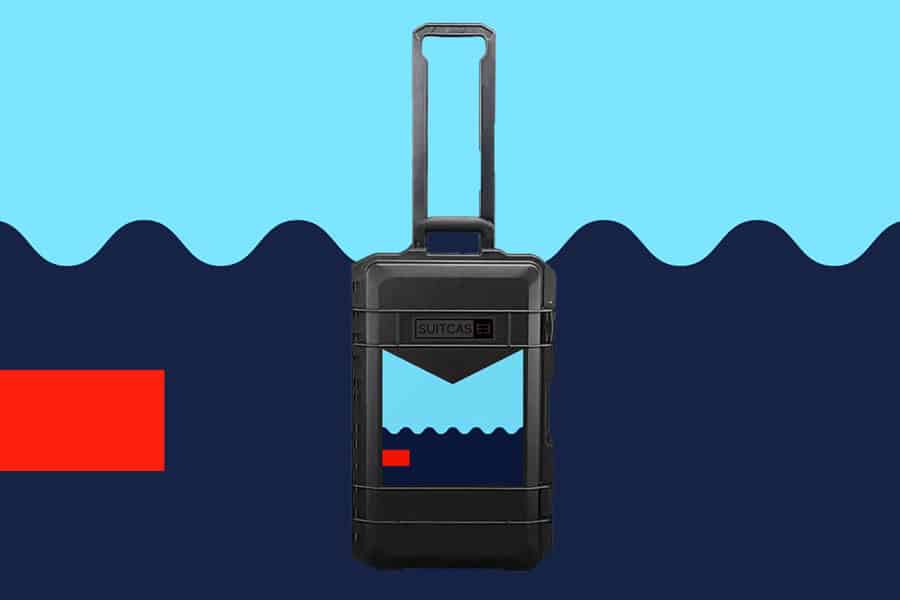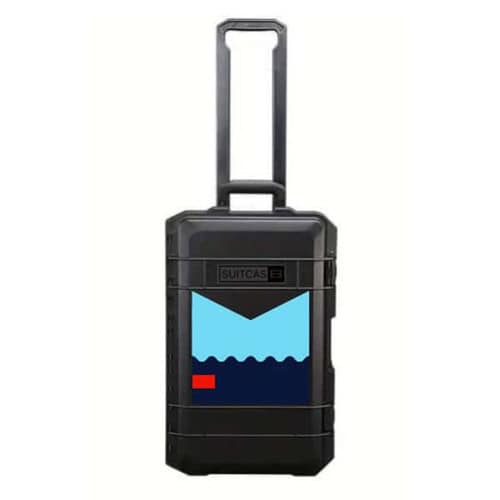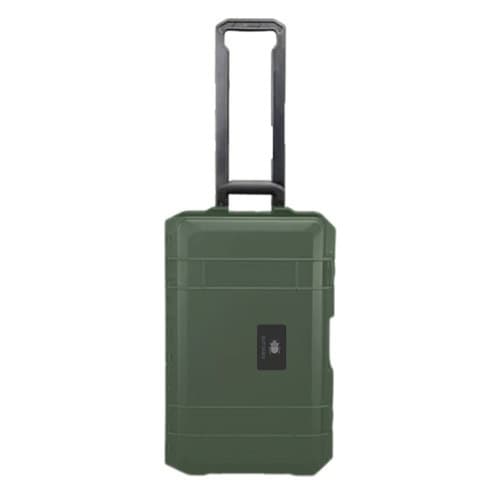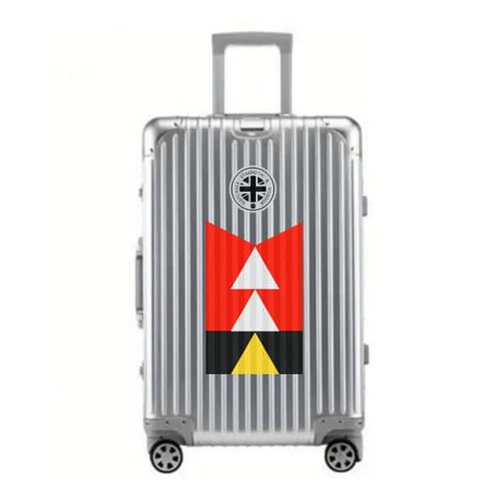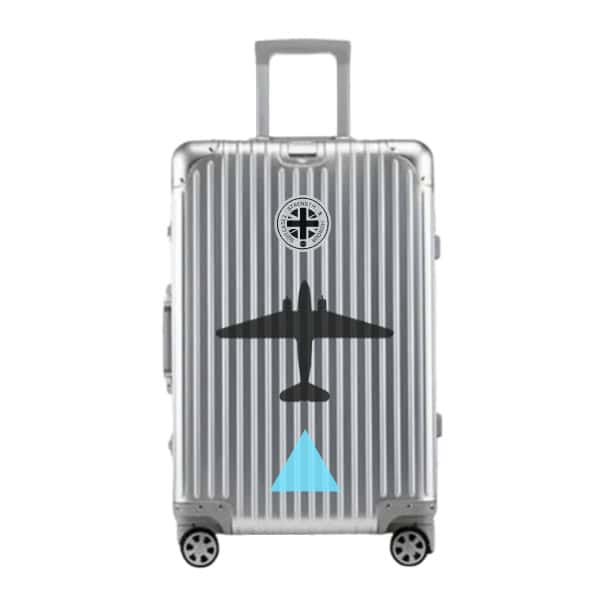Top 10 Eco-Friendly Travel Destinations
Strength & Honour
Stay tuned for our eco-friendly luggage rental services
Explore Sustainable Adventures Around the Globe While Making a Positive Impact on the Environment
SUITCASEƎ
As global awareness about environmental issues continues to rise, more travellers are seeking out eco-friendly destinations that combine adventure with sustainability. Opting for greener travel choices not only helps preserve the planet but also enriches your travel experience. Here’s our guide to the top 10 eco-friendly travel destinations that promise unforgettable experiences while promoting sustainability.
Top 10 Eco-Travel Destinations at a Glance
Costa Rica
Sweden
Iceland
New Zealand
Bhutan
Norway
Kenya
Portugal
Canada
Hawaii
Top 3 Picks
FAQs
1. Costa Rica
Costa Rica, a small yet remarkably diverse country located in Central America, has earned its reputation as a global leader in eco-tourism and conservation. Renowned for its lush rainforests, stunning beaches, and rich biodiversity, Costa Rica is a model for sustainable travel that prioritises the health of the planet while offering unforgettable experiences for visitors. With over 25% of its land protected as national parks and reserves, the country invites travellers to explore its natural wonders while actively participating in local conservation efforts.
A Commitment to Conservation
Costa Rica's commitment to environmental preservation is deeply ingrained in its national identity. This dedication began in the 1970s when the government recognised the importance of protecting its unique ecosystems. Today, Costa Rica is home to more than 30 national parks and numerous wildlife reserves, all designed to safeguard the country's rich biodiversity. The country is celebrated for its innovative approaches to conservation, including ecotourism initiatives that empower local communities and create economic opportunities while preserving natural habitats.
One of the most notable features of Costa Rica's conservation efforts is its payment for ecosystem services (PES) programme, which compensates landowners for maintaining forest cover and engaging in sustainable land management practices. This initiative not only helps protect critical habitats but also encourages locals to participate actively in conservation efforts.
Exploring Costa Rica’s Breathtaking Landscapes
The diverse landscapes of Costa Rica are a haven for outdoor enthusiasts and nature lovers. The country boasts a variety of ecosystems, from tropical rainforests and cloud forests to volcanic mountains and pristine coastlines. Here are some must-visit destinations that showcase Costa Rica's natural beauty:
ARENAL VOLCANO NATIONAL PARK
Arenal Volcano, an iconic symbol of Costa Rica, attracts visitors from around the world with its perfect conical shape and surrounding lush landscapes. Arenal Volcano National Park offers a range of activities, including hiking trails that lead through old lava fields and dense forests teeming with wildlife.
Visitors can embark on guided tours that promote responsible tourism by educating them about the area's unique ecosystems and conservation efforts. After a day of exploration, guests can relax in one of the many natural hot springs fed by the geothermal activity of the volcano, such as Tabacón or Eco Termales. These facilities often employ sustainable practices, including water recycling and energy-efficient systems.
MONTEVERDE CLOUD FOREST RESERVE
The Monteverde Cloud Forest Reserve is a true gem for eco-tourism enthusiasts. Famous for its misty landscapes and unparalleled biodiversity, this reserve is home to countless species of flora and fauna, including the elusive quetzal bird. The reserve's unique climate creates a rich ecosystem that supports various wildlife.
Visitors can explore the reserve through well-maintained hiking trails, participate in guided birdwatching tours, or even traverse suspension bridges high above the forest floor for an exhilarating view of the canopy. Many local guides are deeply knowledgeable about the area’s ecology and sustainability practices, enhancing the experience while promoting responsible tourism.
MANUEL ANTONIO NATIONAL PARK
Manuel Antonio National Park is renowned for its stunning beaches, lush rainforests, and diverse wildlife, including sloths, monkeys, and exotic birds. The park features several well-marked trails that allow visitors to explore its tropical habitats while enjoying breathtaking ocean views.
To promote conservation, park authorities limit visitor numbers and encourage eco-friendly practices such as waste minimisation and respecting wildlife habitats. Local tour operators also offer eco-friendly activities like kayaking in nearby mangroves or snorkelling in protected marine areas, providing opportunities to appreciate the coastal ecosystem while supporting local conservation initiatives.
Engaging with Wildlife Conservation
Costa Rica is home to a remarkable variety of wildlife, making it an ideal destination for animal lovers interested in conservation. Several organisations focus on protecting endangered species and educating visitors about their importance in maintaining ecological balance.
SEA TURTLE SANCTUARIES
One of the most heartwarming experiences in Costa Rica is visiting sea turtle sanctuaries along the Pacific coast. Places like the Ostional Wildlife Refuge provide opportunities for visitors to witness nesting events during turtle season while learning about conservation efforts aimed at protecting these magnificent creatures.
Volunteering at a sea turtle sanctuary not only allows travellers to contribute hands-on support but also deepens their understanding of the challenges faced by these species due to climate change, pollution, and habitat destruction. Visitors can participate in activities such as patrolling nesting beaches or assisting with hatchling releases.
WILDLIFE RESCUE CENTRES
Costa Rica is home to several wildlife rescue centres that rehabilitate injured animals and educate the public about conservation. The Toucan Rescue Ranch and Jaguar Rescue Center are two popular destinations where visitors can learn about local wildlife while supporting their rehabilitation efforts.
At these centres, guests can participate in guided tours that highlight the importance of wildlife conservation and learn about the challenges faced by native species. By visiting these centres, travellers not only get an up-close look at fascinating animals but also contribute financially to their care and rehabilitation.
Travel Smart, Travel Stylish
Eco-Friendly Accommodation
Costa Rica boasts a wealth of eco-friendly lodges and accommodations that prioritise sustainability while providing guests with comfortable experiences. Many of these establishments are located within or near national parks and reserves, allowing travellers to immerse themselves in nature.
- Lapa Rios Lodge: Nestled in the Osa Peninsula, Lapa Rios Lodge operates on sustainable principles that minimise environmental impact. The lodge utilises solar power for energy needs and employs rainwater harvesting systems. Guests can enjoy luxurious accommodations while participating in activities such as guided nature walks or birdwatching tours that support local conservation efforts.
- Finca Rosa Blanca: Located near Poás Volcano, this eco-lodge combines luxury with sustainability by using organic farming practices on-site. Guests can enjoy farm-to-table meals made from locally sourced ingredients while immersing themselves in the beauty of their surroundings. Finca Rosa Blanca also promotes cultural experiences with local artisans and encourages responsible travel practices.
- Hotel Belmar: Situated in Monteverde, Hotel Belmar is committed to sustainability through energy-efficient design and eco-friendly amenities. The hotel offers guided tours that promote environmental awareness and supports local conservation initiatives through partnerships with nearby organisations.
Sustainable Tourism Practices
Costa Rica's success in eco-tourism can be attributed to its emphasis on sustainable practices across various sectors. Tour operators often adhere to guidelines that promote responsible travel, such as:
- Minimising Waste: Many businesses encourage guests to reduce plastic usage by providing refillable water stations and using biodegradable products. Some tour operators also incorporate waste management practices into their excursions.
- Supporting Local Communities: Eco-tourism initiatives often prioritise partnerships with local communities to ensure economic benefits are distributed fairly. Travellers are encouraged to choose locally-owned accommodations, restaurants, and guides to support community-based tourism.
- Educational Experiences: Many tour operators focus on educating visitors about local ecosystems, conservation challenges, and sustainable practices during tours. This approach fosters a sense of responsibility among travellers and encourages them to become advocates for environmental protection.
Is Costa Rica For You?
Costa Rica stands out as a premier eco-friendly travel destination that beautifully balances adventure with conservation efforts. With its remarkable biodiversity, commitment to sustainability, and wealth of eco-tourism experiences, Costa Rica invites travellers to explore its natural wonders while actively participating in local conservation initiatives.
Whether you’re zip-lining through verdant canopies, trekking through national parks, or engaging with local wildlife conservation projects, every moment spent in Costa Rica reinforces a deeper appreciation for our planet’s beauty while supporting efforts to protect it. By choosing Costa Rica as your next travel destination, you’re not just embarking on an extraordinary adventure; you’re joining a global movement towards sustainable tourism and environmental stewardship.
2. Sweden
Sweden, a Nordic paradise known for its stunning landscapes, rich cultural heritage, and progressive values, has emerged as a global leader in sustainability and eco-friendly travel. With a strong commitment to renewable energy, innovative urban planning, and conservation efforts, Sweden offers environmentally conscious travellers a unique opportunity to explore its natural beauty and vibrant cities while making responsible choices. From the serene countryside to the bustling streets of Stockholm, Sweden provides an array of experiences that beautifully blend sustainability with modern living.
A Commitment to Sustainability
Sweden's dedication to sustainability is deeply rooted in its national identity and has been a fundamental part of its development strategy. The country has set ambitious goals to reduce carbon emissions and transition to a fossil fuel-free economy by 2045. This commitment is reflected in various sectors, from energy production to waste management, making Sweden one of the most eco-friendly nations in the world.
- Renewable Energy Initiatives: Approximately 54% of Sweden's energy comes from renewable sources, primarily hydropower and wind energy. The government has invested heavily in expanding renewable energy infrastructure, including solar and bioenergy. This commitment not only reduces greenhouse gas emissions but also enhances energy security and creates green jobs.
- Sustainable Urban Planning: Swedish cities are designed with sustainability in mind. Urban planners prioritise green spaces, cycling infrastructure, and efficient public transportation systems that encourage residents and visitors to minimise their carbon footprints. Cities like Stockholm and Gothenburg serve as models for sustainable urban development, showcasing innovative practices that balance economic growth with environmental responsibility.
Exploring Sweden’s Natural Wonders
Sweden is renowned for its breathtaking natural landscapes, which range from picturesque coastlines and lush forests to serene lakes and majestic mountains. The country offers diverse outdoor activities that allow visitors to connect with nature while promoting ecological preservation.
THE SWEDISH ARCHIPELAGO
The Stockholm Archipelago is a magnificent collection of over 30,000 islands, each offering unique landscapes and experiences. Visitors can explore the archipelago by taking eco-friendly ferries or sailboats that adhere to sustainable practices.
- Island Hopping: Many islands in the archipelago are car-free, encouraging visitors to walk or cycle to explore local villages and natural attractions. Fjäderholmarna, one of the closest islands to Stockholm, is known for its artisanal shops and beautiful beaches, making it an ideal day trip for environmentally conscious travellers.
- Kayaking Adventures: For those seeking adventure, kayaking through the archipelago provides an intimate way to experience its beauty while respecting the environment. Guided tours often include education on local wildlife and conservation efforts, fostering a deeper connection to the area’s ecosystems.
NATIONAL PARKS
Sweden is home to 30 national parks, each showcasing the country’s stunning natural diversity. These parks offer visitors an opportunity to hike, camp, and immerse themselves in pristine wilderness.
- Abisko National Park: Located in Swedish Lapland, Abisko is famous for its dramatic landscapes and opportunities for outdoor activities year-round. In winter, it’s a hotspot for skiing and witnessing the Northern Lights. In summer, hiking trails lead through breathtaking scenery, including Kebnekaise, Sweden’s highest peak. The park promotes sustainable tourism through well-maintained trails and information centres that educate visitors about local flora and fauna.
- Söderåsen National Park: Nestled in Skåne County, Söderåsen is characterised by its lush beech forests and dramatic ravines. The park provides numerous walking trails suitable for all fitness levels. Visitors can engage in birdwatching or discover the rich biodiversity of the area while enjoying guided nature walks that emphasise the importance of conservation.
Eco-Friendly Accommodations
Sweden offers a wide range of eco-friendly accommodations that prioritise sustainability without sacrificing comfort or luxury. Many hotels and lodges focus on reducing their environmental impact through energy-efficient practices, locally sourced materials, and waste reduction initiatives.
- Treehotel: Located in Harads, Treehotel offers unique treehouse accommodations designed by renowned architects. Each treehouse blends seamlessly into the surrounding forest and is built using sustainable materials. The hotel operates on renewable energy and emphasizes eco-friendly practices throughout its operations.
- Fjällnäs Est. 1882: Situated in Swedish Lapland near the border with Norway, Fjällnäs is a historical hotel that has embraced sustainability. The hotel utilises locally sourced materials in its renovations and promotes organic food from local producers. Guests can enjoy outdoor activities that support conservation efforts while taking in stunning views of the surrounding mountains.
- Hotel Skeppsholmen: Located on a tranquil island in central Stockholm, Hotel Skeppsholmen is housed in a former naval base. The hotel combines historic charm with modern sustainability practices by using energy-efficient technologies and offering locally sourced cuisine in its restaurant. Guests can enjoy easy access to both green spaces and cultural attractions.
Travel Smart, Travel Stylish
Sustainable Transportation
Sweden’s public transportation system is among the most efficient and eco-friendly in the world. The country encourages the use of trains, buses, trams, and bicycles for both locals and tourists.
- Train Travel: Sweden's extensive railway network connects major cities and regions, making it easy for travellers to explore without relying on cars. The trains are powered by renewable energy sources, making train travel one of the most sustainable options for getting around.
- Bicycle Infrastructure: Many Swedish cities are bike-friendly, with dedicated cycling lanes and bike-sharing programmes that promote cycling as an alternative mode of transport. Stockholm and Gothenburg offer well-planned cycle routes that allow visitors to explore urban areas while reducing their carbon footprint.
- Public Transport Initiatives: Cities like Malmö have implemented innovative public transport solutions such as electric buses that run on renewable energy. These initiatives encourage residents to utilise public transport rather than personal vehicles, contributing to reduced emissions and cleaner air.
Culinary Sustainability
Sweden’s culinary scene reflects its commitment to sustainability by emphasising local ingredients and sustainable farming practices. The "New Nordic Cuisine" movement celebrates seasonal produce and traditional cooking techniques while prioritising environmental responsibility.
- Farm-to-Table Dining: Many restaurants across Sweden focus on sourcing ingredients from local farms and fisheries that adhere to sustainable practices. Diners can enjoy fresh seafood from the Baltic Sea or organic vegetables grown in nearby gardens. Restaurants like Oaxen Slip in Stockholm highlight Nordic culinary traditions while promoting sustainability through their sourcing practices.
- Food Festivals: Throughout the year, Sweden hosts various food festivals that celebrate local produce and sustainable cooking methods. Events such as the Malmö Festival showcase regional cuisine while promoting awareness of food sustainability and supporting local farmers.
Embracing Local Culture
- Cultural Festivals: Sweden hosts numerous cultural events throughout the year, including Midsummer celebrations, Christmas markets, and local art festivals. These events often highlight traditional crafts, music, and culinary delights unique to Swedish culture.
- Community-Based Tourism: Many rural areas offer community-based tourism experiences that allow visitors to engage with local artisans and learn about traditional crafts such as woodworking or textile production. These experiences not only enrich travellers’ understanding of Swedish culture but also provide economic benefits to local communities.
Is Sweden For You?
Sweden stands out as a premier eco-friendly travel destination that beautifully marries sustainability with breathtaking landscapes and rich cultural experiences. With its commitment to renewable energy, innovative urban planning, and responsible tourism practices, Sweden invites environmentally conscious travellers to explore its natural wonders while supporting local initiatives.
Whether you're hiking through national parks, indulging in farm-to-table dining experiences, or exploring vibrant cities by bicycle, every aspect of your journey through Sweden reinforces a sense of responsibility toward protecting our planet while enjoying its beauty. By choosing Sweden as your next travel destination, you’re not just embarking on an extraordinary adventure; you’re becoming part of a global movement towards sustainable living and environmental stewardship.
Products
Expedition Series Bestsellers
3. Iceland
Iceland, often referred to as the "Land of Fire and Ice," is a captivating destination known for its breathtaking natural landscapes, unique geological features, and rich cultural heritage. This island nation is not only famous for its dramatic scenery but also for its unwavering commitment to sustainability and renewable energy. With nearly 100% of its electricity generated from geothermal and hydroelectric sources, Iceland sets a global standard for eco-friendly practices in tourism. Visitors are invited to explore stunning waterfalls, geysers, and the awe-inspiring Northern Lights while enjoying eco-conscious accommodations that prioritise environmental stewardship.
A Commitment to Renewable Energy
Iceland's dedication to renewable energy is a cornerstone of its environmental policy. The country is endowed with abundant geothermal resources, which have been harnessed to provide heating and electricity to homes and businesses. Approximately 90% of the country’s homes are heated by geothermal energy, ensuring a low carbon footprint and reducing reliance on fossil fuels.
Hydropower complements geothermal energy, contributing significantly to Iceland's electricity supply. The country's rivers and waterfalls, nourished by glacial meltwater, provide ideal conditions for hydropower generation. Together, these renewable sources make Iceland one of the cleanest energy producers in the world.
Exploring Iceland’s Natural Wonders
Iceland's diverse landscapes offer a wealth of natural wonders, from majestic waterfalls and volcanic landscapes to serene glaciers and rugged coastlines. The following highlights showcase some of the most iconic and breathtaking destinations in Iceland:
GOLDEN CIRCLE
The Golden Circle is a popular tourist route that encompasses three major attractions: Þingvellir National Park, Gullfoss Waterfall, and the Geysir Geothermal Area.
- Þingvellir National Park: A UNESCO World Heritage Site, Þingvellir is where the North American and Eurasian tectonic plates meet. The park offers visitors stunning views of rift valleys, crystal-clear lakes, and unique geological formations. It also holds historical significance as the site of Iceland’s first parliament, Alþingi. The park promotes sustainable tourism through well-marked trails that educate visitors about its geological and historical importance.
- Gullfoss Waterfall: Known as the "Golden Falls," Gullfoss is a spectacular waterfall that plunges into a deep canyon. Visitors can view the falls from various vantage points along well-maintained paths. The area around Gullfoss is protected to preserve its natural beauty, and eco-friendly facilities ensure that visitors can enjoy the site without impacting the environment.
- Geysir Geothermal Area: Home to the famous Strokkur geyser, which erupts every few minutes, the Geysir Geothermal Area offers a fascinating glimpse into Iceland’s geothermal activity. Educational signage throughout the area informs visitors about geothermal energy and its significance in Icelandic culture and daily life.
SOUTH COAST WONDERS
The South Coast of Iceland is home to some of the country’s most stunning natural features.
- Seljalandsfoss and Skógafoss Waterfalls: These two iconic waterfalls are must-see attractions for visitors exploring the South Coast. Seljalandsfoss allows visitors to walk behind its cascading water for a unique perspective, while Skógafoss is known for its impressive height and rainbows that often form in its mist.
- Reynisfjara Black Sand Beach: Near the town of Vík, Reynisfjara is famous for its black sand beaches, basalt columns, and dramatic sea stacks. Visitors can enjoy breathtaking views while learning about coastal ecosystems and the importance of protecting marine habitats.
- Vatnajökull National Park: Home to Europe’s largest glacier, Vatnajökull National Park offers diverse landscapes that include glaciers, volcanic craters, and lush valleys. Guided glacier hikes provide an opportunity to explore this stunning environment while learning about glaciology and climate change impacts.
The Northern Lights
One of Iceland’s most enchanting features is the Northern Lights (Aurora Borealis), a natural phenomenon that attracts visitors from around the world. The best time to witness this spectacle is during the winter months when dark nights illuminate the sky with vibrant colours.
To enhance the experience sustainably, many tour operators offer eco-friendly Northern Lights tours that minimise light pollution by taking guests far from urban areas. These tours often incorporate educational components about the science behind the Northern Lights while promoting respect for local wildlife and ecosystems.
Travel Smart, Travel Stylish
Eco-Friendly Accommodation
Iceland boasts a growing number of eco-friendly accommodations that prioritise sustainability without compromising comfort or luxury. Many hotels and lodges are committed to minimising their environmental impact through energy-efficient practices and responsible sourcing.
- ION Adventure Hotel: Located near Þingvellir National Park, this hotel combines modern luxury with sustainability. Built using local materials, ION operates on renewable energy and features an on-site restaurant that serves dishes made from locally sourced ingredients. Guests can enjoy outdoor adventures such as hiking or snorkelling while supporting conservation efforts.
- Frost and Fire Hotel: Situated in Hveragerði, this eco-conscious hotel utilises geothermal energy for heating and hot water. Guests can relax in natural hot springs located on-site or take guided tours to explore nearby geothermal areas. Frost and Fire Hotel also promotes local culinary traditions by using organic ingredients sourced from nearby farms.
- Hotel Rangá: Located near Hella, Hotel Rangá offers luxury accommodations with a strong commitment to sustainability. The hotel features eco-friendly initiatives such as waste management systems and energy-efficient technologies. Additionally, it provides opportunities for guests to engage in wildlife tours that highlight local conservation efforts.
Soaking in Natural Hot Springs
No visit to Iceland would be complete without indulging in its famous hot springs. The Blue Lagoon is perhaps the most well-known thermal spa in the country, attracting visitors with its stunning azure waters surrounded by lava fields.
While the Blue Lagoon prioritises sustainability by implementing water recycling systems and using renewable energy sources for operations, many lesser-known hot springs throughout Iceland offer similarly rejuvenating experiences in more tranquil settings.
- Secret Lagoon: Located in Flúðir, the Secret Lagoon is one of Iceland's oldest natural hot springs. This geothermal pool allows visitors to soak in warm waters while surrounded by beautiful landscapes. The facility promotes eco-friendly practices by using natural geothermal heating and limiting visitor numbers to protect the environment.
- Myvatn Nature Baths: Situated in North Iceland, these baths provide a more intimate experience compared to larger spas. The Myvatn Nature Baths are fed by geothermal springs and offer stunning views of Lake Myvatn and surrounding mountains while emphasising sustainability through environmentally friendly operations.
Responsible Wildlife Tourism
Iceland is home to unique wildlife species that contribute to its rich biodiversity. Responsible wildlife tourism is essential for protecting these species while providing educational opportunities for visitors.
- Whale Watching: Iceland is one of the best places in the world for whale watching, particularly during summer months when migratory species return to feed in its waters. Many tour operators adhere to strict guidelines designed to minimise disturbance to marine life while providing educational insights into whale behaviour and conservation efforts.
- Birdwatching Tours: Iceland’s diverse ecosystems attract numerous bird species, making it a paradise for birdwatchers. Puffins, Arctic terns, and eagles can all be spotted during various seasons. Guided birdwatching tours often focus on sustainability by promoting responsible viewing practices that protect nesting sites.
Embracing Local Culture
Iceland’s rich cultural heritage is another compelling reason to visit this extraordinary country. Engaging with local traditions and customs fosters a deeper appreciation for Icelandic society while supporting cultural preservation efforts.
- Cultural Festivals: Throughout the year, Iceland hosts numerous cultural events and festivals that celebrate its heritage, including Þorrablót (a midwinter festival) and Reykjavik Culture Night. These events showcase traditional crafts, music, and culinary delights unique to Icelandic culture.
- Community-Based Tourism: Many rural areas offer community-based tourism experiences that allow visitors to engage with local artisans and learn about traditional crafts such as knitting or woodworking. These experiences not only enrich travellers’ understanding of Icelandic culture but also provide economic benefits to local communities.
Is Iceland For You?
Iceland presents an exceptional eco-friendly travel destination where breathtaking natural beauty meets a robust commitment to sustainability. With nearly 100% of its electricity generated from renewable sources, responsible tourism practices woven into every aspect of travel, and a wealth of stunning landscapes to explore, Iceland invites environmentally conscious travellers to immerse themselves in its wonders while contributing positively to conservation efforts.
Whether you’re soaking in geothermal hot springs, witnessing the Northern Lights dance across the sky, or exploring majestic waterfalls and glaciers, every moment spent in Iceland reinforces a deeper appreciation for our planet’s beauty while supporting initiatives aimed at preserving it for future generations. By choosing Iceland as your next travel destination, you’re embarking on an extraordinary adventure that aligns with your values—one that champions sustainability and environmental stewardship.
4. New Zealand
New Zealand, a breathtaking archipelago in the southwestern Pacific Ocean, is celebrated for its stunning landscapes, vibrant Maori culture, and profound commitment to sustainability and conservation. With a diverse array of ecosystems ranging from lush rainforests and snow-capped mountains to pristine beaches and expansive fjords, New Zealand offers a wealth of opportunities for environmentally conscious travellers. The nation’s dedication to preserving its natural beauty is evident in its numerous eco-friendly lodges, guided tours, and community initiatives that promote responsible travel. Whether you're exploring the majestic fjords of Milford Sound or hiking through national parks like Tongariro, your journey through New Zealand can be one that supports local efforts to protect its unique ecosystems.
A Commitment to Sustainability
New Zealand's dedication to sustainability is evident in its ambitious environmental policies and community initiatives. The government has set targets to achieve a net-zero carbon economy by 2050, reflecting a commitment to reducing greenhouse gas emissions and promoting renewable energy sources. This focus on sustainability is mirrored in the tourism sector, where eco-friendly practices are increasingly becoming the norm.
The country is home to numerous eco-certifications and initiatives that encourage businesses to adopt sustainable practices. The Qualmark certification, for example, is awarded to operators who meet rigorous environmental and social responsibility standards, ensuring that travellers can make informed choices when selecting their accommodations and activities.
Exploring New Zealand’s Natural Wonders
New Zealand’s diverse landscapes offer a wealth of outdoor experiences that showcase its natural beauty. The country is divided into two main islands—North Island and South Island—each boasting distinct ecosystems, geographical features, and cultural experiences.
NORTH ISLAND
- Tongariro National Park: As New Zealand's oldest national park and a UNESCO World Heritage site, Tongariro National Park is famous for its volcanic landscapes, emerald lakes, and rich Maori history. The Tongariro Alpine Crossing is one of the most popular hiking trails in the country, offering stunning views of active volcanoes such as Mount Ngauruhoe and Mount Tongariro. The park promotes sustainable tourism through well-maintained trails and educational signage about the area's geological significance and conservation efforts.
- Rotorua: Known for its geothermal activity and Maori culture, Rotorua offers visitors unique experiences such as mud pools, geysers, and traditional Maori cultural performances. Many local companies focus on sustainability by using geothermal energy for heating and promoting cultural tourism that respects Maori traditions. Visitors can engage with local iwi (tribes) through guided tours that highlight the significance of natural resources and the importance of conservation in Maori culture.
- Bay of Islands: This stunning region is made up of over 140 islands and is famous for its marine life and beautiful beaches. Eco-friendly tour operators offer sailing excursions that allow visitors to explore the bay while learning about marine conservation efforts aimed at protecting dolphins, whales, and other aquatic species. Activities such as kayaking and snorkelling provide opportunities to engage with nature while minimising environmental impact.
SOUTH ISLAND
- Milford Sound: Often hailed as one of the most beautiful places in the world, Milford Sound is characterised by its towering cliffs, cascading waterfalls, and pristine waters. Eco-conscious cruise operators offer guided tours that focus on wildlife observation and environmental education. These tours provide insight into the unique ecosystems of the fjord while promoting responsible wildlife viewing practices. Visitors can also explore the surrounding Fiordland National Park through hiking trails that offer breathtaking views of the landscape.
- Queenstown: Known as the adventure capital of New Zealand, Queenstown offers a plethora of outdoor activities ranging from hiking and biking to bungee jumping and skiing. Many local businesses prioritise sustainability by using eco-friendly equipment and practices. For example, mountain biking trails are carefully designed to minimise erosion and preserve local flora, while guided tours often emphasise Leave No Trace principles.
Travel Smart, Travel Stylish
Eco-Friendly Accommodation
New Zealand is home to a wide variety of eco-friendly lodges and accommodations that prioritise sustainability while providing guests with comfortable and unique experiences. Notable examples include:
- Hapuku Lodge & Tree Houses: Nestled in Kaikoura, this eco-lodge offers treehouse accommodations that blend seamlessly with the surrounding environment. Built using sustainable materials, the lodge operates on solar power and promotes organic farming practices. Guests can enjoy locally sourced meals while taking in stunning views of the mountains and ocean.
- The Lindis: Located in the heart of the Southern Alps, The Lindis offers luxury accommodation with a focus on sustainability. The lodge utilises renewable energy sources, including hydroelectric power, and employs water conservation measures. Guests can engage in activities that promote conservation, such as guided hikes or wildlife monitoring projects.
- Eagles Nest: Situated in the Bay of Islands, Eagles Nest is a luxury eco-resort that prioritises sustainability through energy-efficient design and locally sourced materials. The resort offers stunning views of the surrounding landscape while providing guests with opportunities to engage in eco-friendly activities such as kayaking and wildlife tours.
Embracing Local Culture
One of the most enriching aspects of visiting New Zealand is engaging with its rich Maori culture. The indigenous Maori people have a deep spiritual connection to the land, and many eco-tourism initiatives incorporate cultural elements that promote understanding and respect for Maori traditions.
Visitors can participate in cultural experiences such as traditional haka performances or hangi feasts, where food is cooked underground using geothermal heat. These experiences not only provide insight into Maori customs but also support local communities by contributing to their economic sustainability.
Responsible Wildlife Tourism
New Zealand is home to a diverse array of wildlife, making it an ideal destination for animal lovers interested in conservation. Several organisations focus on protecting endangered species while educating visitors about their importance in maintaining ecological balance.
- Whale Watching: Kaikoura is renowned for its whale watching opportunities, where visitors can spot sperm whales year-round. Eco-friendly tour operators adhere to strict guidelines to ensure minimal disturbance to marine life while providing educational insights into whale behaviour and conservation efforts.
- Penguin Encounters: New Zealand is home to several species of penguins, including the endangered yellow-eyed penguin. Wildlife tours in places like Otago Peninsula offer visitors a chance to observe these adorable creatures in their natural habitat while supporting conservation initiatives aimed at protecting their populations.
Is New Zealand For You?
New Zealand presents a remarkable eco-friendly travel destination where sustainability intertwines with breathtaking natural beauty and rich cultural heritage. With its commitment to renewable energy, responsible tourism practices, and diverse landscapes, New Zealand invites travellers to explore its wonders while contributing positively to conservation efforts.
Whether you’re hiking through national parks, soaking in geothermal hot springs, or engaging with local Maori culture, every experience in New Zealand fosters a deeper appreciation for the environment and encourages responsible travel practices. By choosing New Zealand as your next travel destination, you’re embarking on an adventure that not only enriches your own life but also supports efforts to preserve this incredible country for generations to come.
Products
Origin Series Bestsellers
5. Bhutan
Nestled in the eastern Himalayas, Bhutan is a breathtaking kingdom that has garnered global attention for its pioneering approach to sustainable tourism. Unlike many other travel destinations that prioritise economic gain, Bhutan places great importance on the well-being of its citizens through its unique philosophy of Gross National Happiness (GNH). This holistic approach to development focuses on balancing economic growth with environmental conservation, cultural preservation, and good governance. With its stunning landscapes, ancient monasteries, and vibrant traditions, Bhutan offers a truly unique and eco-conscious travel experience.
A Commitment to Gross National Happiness
Bhutan’s commitment to Gross National Happiness is not just a slogan; it is a guiding principle that shapes the country’s policies and practices. The GNH framework consists of four pillars: sustainable development, cultural preservation, environmental conservation, and good governance. This philosophy reflects the belief that true progress is measured not solely by economic indicators but also by the welfare and happiness of the people.
To maintain this philosophy, Bhutan has implemented various measures to control tourism and protect its cultural heritage and environment. The country imposes a minimum daily fee for tourists, which includes accommodation, meals, and a guide. This system limits the number of visitors, ensuring that tourism remains manageable and sustainable while providing quality experiences for those who do visit.
Responsible Tourism Practices
Bhutan's approach to tourism is deeply rooted in responsible practices that prioritise the preservation of its unique culture and environment. The government has set strict regulations that guide the tourism industry, ensuring that visitors engage in respectful and sustainable practices.
CONTROLLED TOURIST NUMBERS
To prevent overcrowding and protect its delicate ecosystems, Bhutan limits the number of tourists who can enter the country each year. This controlled approach allows for a more intimate experience with the local culture and environment, reducing the negative impact that mass tourism can have on fragile ecosystems.
CULTURAL SENSITIVITY
Visitors to Bhutan are encouraged to respect local customs and traditions. This includes dressing modestly when visiting religious sites, participating in local festivals, and engaging with communities in a respectful manner. The government promotes cultural education as part of the travel experience, ensuring that tourists understand the significance of Bhutanese traditions.
ECO-FRIENDLY ACCOMMODATION
Many hotels and lodges in Bhutan are designed with sustainability in mind. They often use local materials in their construction and incorporate energy-efficient systems to minimise their environmental impact. Some accommodations also practice waste reduction and engage in community-based initiatives that support local economies.
- Zhiwa Ling Hotel: Located in Paro, Zhiwa Ling Hotel is one of Bhutan's first luxury hotels built according to traditional Bhutanese architecture. The hotel operates on sustainable principles by using renewable energy sources and sourcing food locally. Guests can enjoy authentic Bhutanese hospitality while making a positive impact on the local community.
- Amankora: This luxurious resort chain operates several lodges throughout Bhutan, each designed to reflect the local culture and environment. Amankora prioritises sustainability through eco-friendly practices such as water conservation, waste management, and community engagement initiatives.
Exploring Bhutan’s Natural Wonders
Bhutan is renowned for its stunning natural landscapes, which include towering peaks, pristine valleys, and lush forests. The country offers numerous opportunities for outdoor adventures that allow visitors to immerse themselves in its breathtaking scenery while supporting conservation efforts.
TREKKING IN THE HIMALAYAS
Bhutan is home to some of the most spectacular trekking routes in the world, with trails that wind through stunning mountain landscapes and charming villages.
- Druk Path Trek: This popular trek takes hikers through stunning landscapes between Paro and Thimphu over approximately six days. The trail features beautiful lakes, ancient monasteries, and panoramic views of the Himalayas. Along the way, trekkers can learn about local flora and fauna while supporting conservation efforts through their trekking permits.
- Snowman Trek: Considered one of the most challenging treks globally, the Snowman Trek traverses high-altitude landscapes and remote villages over approximately 25 days. This trek offers breathtaking views of snow-capped peaks while providing an opportunity to experience Bhutan’s rich cultural heritage.
NATIONAL PARKS AND CONSERVATION AREAS
Bhutan is home to several national parks and protected areas that showcase its rich biodiversity. These parks not only protect endangered species but also promote eco-tourism as a means of funding conservation efforts.
- Jigme Dorji National Park: Located in northwestern Bhutan, this park is known for its diverse wildlife, including the elusive snow leopard and red panda. Visitors can engage in guided treks that promote wildlife conservation while enjoying breathtaking views of the surrounding mountains.
- Phrumshum Chhu Wildlife Sanctuary: This lesser-known sanctuary is home to various endangered species, including the black-necked crane. Birdwatching tours in this sanctuary provide opportunities to observe these majestic birds during their migration season while supporting conservation initiatives aimed at protecting their habitats.
Travel Smart, Travel Stylish
Engaging with Local Culture
Bhutan's rich cultural heritage is one of its most alluring features. The country is steeped in ancient traditions that are deeply rooted in its Buddhist beliefs and practices.
MONASTERIES AND DZONGS
Visitors to Bhutan can explore numerous monasteries (gompas) and dzongs (fortress-monasteries) that showcase stunning architecture and provide insight into the country's spiritual life.
- Tiger’s Nest Monastery (Paro Taktsang): Perched on a cliffside at an elevation of 3,120 meters (10,240 feet), Tiger’s Nest is one of Bhutan's most iconic landmarks. The trek to this sacred site offers breathtaking views and an opportunity to learn about its significant history tied to Guru Padmasambhava, who introduced Buddhism to Bhutan.
- Punakha Dzong: Known as the "Palace of Great Happiness," Punakha Dzong is one of Bhutan’s most beautiful dzongs, situated at the confluence of two rivers. Visitors can learn about its historical significance while admiring its intricate architecture and stunning surroundings.
FESTIVALS AND LOCAL TRADITIONS
Bhutanese culture is celebrated through vibrant festivals held throughout the year. These festivals showcase traditional music, dance, and rituals that reflect the country’s spiritual heritage.
- Tshechus: Local festivals known as Tshechus are held annually in each district and celebrate significant events from Buddhist history. Visitors are encouraged to participate respectfully in these celebrations, which often include colourful mask dances, traditional music performances, and communal feasting.
- Cultural Workshops: Many communities offer workshops where visitors can learn traditional crafts such as weaving, painting, or archery. Engaging in these activities not only enriches travellers' understanding of Bhutanese culture but also supports local artisans economically.
Sustainable Agriculture
Bhutan's agricultural practices are closely aligned with its commitment to sustainability. The country has focused on promoting organic farming methods to reduce chemical usage and preserve soil health.
- Organic Farming Initiatives: The government has implemented policies to promote organic farming across the nation, leading to Bhutan becoming one of the first countries to commit to 100% organic farming by 2020. Visitors can support this initiative by purchasing locally grown organic produce at markets or dining at restaurants that source ingredients sustainably.
Is Bhutan For You?
Bhutan stands out as a premier eco-friendly travel destination where sustainability harmoniously blends with rich cultural heritage and stunning natural landscapes. Its pioneering philosophy of Gross National Happiness serves as a guiding light for responsible tourism practices that prioritise environmental conservation and cultural preservation.
Whether you're trekking through majestic mountains, visiting ancient monasteries, or participating in vibrant festivals, every experience in Bhutan fosters a deeper appreciation for the environment while supporting local communities. By choosing Bhutan as your next travel destination, you’re not just embarking on an extraordinary adventure; you’re contributing positively to a nation dedicated to preserving its unique identity for generations to come.
6. Norway
Norway, a land of breathtaking fjords, towering mountains, and pristine wilderness, is a beacon of sustainability and eco-tourism. With its commitment to preserving the natural environment and promoting green practices, Norway offers eco-travellers a unique opportunity to explore its stunning landscapes while supporting local conservation initiatives. From electric public transport options to eco-friendly accommodations, visitors can enjoy a truly sustainable experience as they embark on adventures through some of the most picturesque regions in the world. Whether you are exploring the dramatic fjords, trekking in the Lofoten Islands, or cruising under the midnight sun, Norway is truly an eco-traveller's paradise.
A Commitment to Sustainability
Norway’s dedication to sustainability is evident in its policies and initiatives aimed at reducing carbon emissions and protecting the environment. The government has set ambitious goals to become carbon-neutral by 2030, focusing on renewable energy sources and promoting sustainable practices across various sectors.
RENEWABLE ENERGY
Norway is a global leader in renewable energy, with approximately 98% of its electricity generated from hydropower. The country’s abundant water resources provide ideal conditions for hydropower generation, allowing Norway to maintain one of the cleanest energy profiles in the world. Additionally, Norway is investing in wind power and solar energy to diversify its renewable energy portfolio further.
The country's commitment to renewable energy extends to its transportation sector, where electric vehicles (EVs) have gained tremendous popularity. Norway has become a pioneer in promoting electric vehicles by offering incentives such as tax exemptions, toll-free access, and access to bus lanes for EV owners. This initiative not only reduces harmful emissions but also contributes to cleaner air and a healthier environment.
Exploring Norway's Natural Wonders
Norway is renowned for its dramatic landscapes that inspire awe and wonder. From jagged fjords and snow-capped peaks to tranquil lakes and lush forests, the country offers countless opportunities for outdoor adventures that allow visitors to connect with nature while supporting local conservation efforts.
THE FJORDS OF NORWAY
The fjords of Norway are among the most iconic natural features in the world, characterised by their steep cliffs, deep blue waters, and stunning scenery.
- Geirangerfjord: A UNESCO World Heritage Site, Geirangerfjord is famous for its breathtaking beauty, including cascading waterfalls such as the Seven Sisters and Bridal Veil. Visitors can embark on eco-friendly boat tours that promote sustainable practices by minimising noise pollution and respecting wildlife habitats. These tours often include educational components that highlight the importance of preserving the fjord's unique ecosystem.
- Nærøyfjord: Another UNESCO World Heritage Site, Nærøyfjord is known for its narrow passages and towering cliffs. Eco-conscious cruise operators offer guided tours that emphasise responsible wildlife viewing and environmental stewardship, allowing visitors to witness the incredible biodiversity of this stunning region.
THE LOFOTEN ISLANDS
The Lofoten Islands are a breathtaking archipelago located above the Arctic Circle, known for their dramatic peaks, charming fishing villages, and vibrant wildlife. This region is a must-visit for eco-travellers seeking adventure and natural beauty.
- Hiking and Outdoor Activities: The Lofoten Islands offer a variety of hiking trails suitable for all skill levels. Popular hikes include Reinebringen, which provides panoramic views over the picturesque village of Reine, and Ryten, which leads to stunning vistas of Kvalvika Beach. Many local hiking guides focus on sustainable practices by educating visitors about the area's ecology and promoting responsible hiking techniques.
- Wildlife Watching: The Lofoten Islands are home to diverse wildlife, including seabirds, seals, and even whales during certain seasons. Eco-friendly wildlife tours allow visitors to observe these animals in their natural habitats while supporting conservation efforts aimed at protecting local ecosystems.
Eco-Friendly Accommodation
Norway boasts a variety of eco-friendly accommodations that prioritise sustainability while providing guests with comfortable and unique experiences. Many hotels and lodges are committed to reducing their environmental impact through energy-efficient practices and responsible sourcing.
- Juvet Landscape Hotel: Located near Geirangerfjord, Juvet Landscape Hotel offers a unique experience with minimalist cabins that blend seamlessly into the stunning landscape. The hotel operates on renewable energy sources and prioritises sustainable practices such as recycling and using locally sourced materials in its construction.
- Lyngen Lodge: Situated in the Lyngen Alps, this eco-friendly lodge focuses on sustainability through energy-efficient design and locally sourced cuisine. Guests of Lyngen Lodge can enjoy outdoor activities such as skiing or hiking while supporting conservation efforts in the surrounding area.
- Rorbu Hotel: Traditional fishing cabins known as rorbuer can be found throughout the Lofoten Islands. Many rorbu hotels have embraced sustainability by implementing eco-friendly practices such as waste reduction and using renewable energy sources while providing guests with a unique glimpse into local culture.
Travel Smart, Travel Stylish
Sustainable Transportation Options
Norway’s commitment to sustainability extends to its transportation options, making it easy for travellers to navigate the country while minimising their carbon footprint.
- Electric Public Transport: Major cities like Oslo and Bergen have invested heavily in electric public transport systems, including trams, buses, and ferries. These environmentally friendly options reduce emissions while providing convenient transportation for both locals and visitors.
- Cycling Infrastructure: Many Norwegian cities are designed with cycling in mind, featuring dedicated bike lanes and rental services that promote cycling as an alternative mode of transport. Exploring cities like Copenhagen by bike allows visitors to appreciate the beauty of their surroundings while contributing to cleaner air.
- Fjord Cruises: Several ferry services operating in Norway have transitioned to electric or hybrid vessels that reduce emissions and noise pollution in sensitive marine environments. These eco-friendly cruises offer visitors a chance to explore Norway's stunning fjords while supporting sustainable tourism practices.
Engaging with Local Culture
Norwegian culture is rich in history and traditions that reflect its deep connection to nature. Engaging with local customs provides visitors with a deeper understanding of Norwegian society while supporting cultural preservation efforts.
- Cultural Festivals: Throughout the year, Norway hosts various cultural festivals celebrating its heritage, including Midsummer celebrations, Christmas markets, and traditional folk music events. These festivals often showcase local crafts and cuisine while providing an opportunity to engage with communities.
- Sami Culture: The indigenous Sami people have a rich cultural heritage tied to reindeer herding and traditional crafts. Visitors can participate in Sami experiences that promote cultural understanding while supporting indigenous communities economically.
Culinary Sustainability
Norway’s culinary scene reflects its commitment to sustainability by emphasising local ingredients and traditional cooking methods. The "New Nordic Cuisine" movement celebrates seasonal produce while prioritising environmental responsibility.
- Farm-to-Table Dining: Many restaurants across Norway focus on sourcing ingredients from local farms that adhere to sustainable practices. Diners can enjoy fresh seafood from sustainable fisheries or organic vegetables grown in nearby gardens. Restaurants like Maaemo in Oslo highlight local culinary traditions while promoting sustainability through their sourcing practices.
- Food Festivals: Throughout the year, Norway hosts various food festivals that celebrate local produce and sustainable cooking methods. Events such as the Oslo Food Festival showcase regional cuisine while promoting awareness of food sustainability and supporting local farmers.
Conservation Initiatives
Norway is dedicated to protecting its natural environment through various conservation initiatives aimed at preserving biodiversity and promoting responsible tourism practices.
- Nature Reserves: The country has established numerous nature reserves that protect critical habitats for wildlife and promote sustainable tourism activities. Visitors are encouraged to engage in low-impact activities such as hiking or birdwatching in these protected areas.
- Community-Based Conservation: Many local communities are actively involved in conservation efforts, promoting sustainable practices that benefit both residents and visitors. Engaging with these communities through volunteer programmes or eco-tourism initiatives allows travellers to contribute positively to conservation efforts while experiencing authentic Norwegian culture.
Is Norway For You?
Norway stands out as a premier eco-friendly travel destination where stunning natural beauty meets a strong commitment to sustainability. With its breathtaking fjords, pristine landscapes, and culturally rich experiences, Norway invites environmentally conscious travellers to explore its wonders while actively participating in conservation efforts.
Whether you’re hiking through dramatic mountains, cruising along majestic fjords, or indulging in farm-to-table dining experiences, every moment spent in Norway reinforces a deeper appreciation for our planet's beauty while supporting initiatives aimed at preserving it for future generations. By choosing Norway as your next travel destination, you’re embarking on an extraordinary adventure that aligns with your values—one that champions sustainability and environmental stewardship.
Products
Icon Series Bestsellers
7. Kenya
Kenya, renowned for its breathtaking landscapes and rich biodiversity, is a top destination for eco-conscious travellers who seek adventure intertwined with conservation. The country is home to some of the world’s most iconic national parks and wildlife reserves, including the Maasai Mara and Amboseli, where visitors can witness a diverse array of wildlife in their natural habitats. What sets Kenya apart as an eco-friendly travel destination is its commitment to sustainable tourism practices that not only enhance the visitor experience but also contribute significantly to conservation efforts and local community development.
A Commitment to Conservation and Community
Kenya's approach to eco-tourism is built on the principles of sustainability, conservation, and community involvement. The government, in collaboration with local communities and various non-governmental organisations, has developed a framework that ensures that eco-tourism benefits both the environment and the people who depend on it.
ECO-TOURISM POLICIES
Kenya has implemented various eco-tourism policies aimed at promoting responsible travel practices that protect wildlife and their habitats while supporting local economies. These policies encourage tourists to engage in low-impact activities that minimise environmental footprints, ensuring that natural resources are preserved for future generations.
COMMUNITY-BASED CONSERVATION
Many national parks and reserves in Kenya are surrounded by local communities that depend on these natural resources for their livelihoods. To combat poaching and habitat destruction, various community-based conservation initiatives have been established. These projects empower local communities by involving them in the management of natural resources, creating economic alternatives through eco-tourism that reduce reliance on poaching and deforestation.
Exploring Kenya’s Natural Wonders
Kenya's diverse landscapes range from savannahs and mountains to lakes and coastlines, offering visitors a wealth of opportunities to explore its stunning natural beauty while engaging in eco-friendly activities.
MAASAI MARA NATIONAL RESERVE
The Maasai Mara is perhaps the most famous wildlife reserve in Kenya, known for its incredible biodiversity and the annual Great Migration of wildebeest and zebras. This reserve plays a crucial role in conservation efforts and offers visitors a unique opportunity to witness one of nature's most spectacular events.
- Responsible Safari Experiences: Eco-conscious safari operators in the Maasai Mara prioritise animal welfare and habitat preservation. Many lodges and camps in the area have adopted sustainable practices, such as using solar energy, sourcing food locally, and employing local guides who are well-versed in conservation efforts. These experiences allow visitors to enjoy close encounters with wildlife while ensuring minimal impact on their environment.
- Community Involvement: Many safari lodges in the Maasai Mara work closely with local Maasai communities to create economic opportunities through employment and cultural exchange. Visitors can engage with Maasai culture by participating in traditional dances or visiting local villages, fostering a deeper understanding of the connection between conservation and community well-being.
AMBOSLI NATIONAL PARK
Amboseli National Park is renowned for its breathtaking views of Mount Kilimanjaro and its large herds of elephants. The park plays a vital role in elephant conservation, making it an ideal destination for eco-conscious travellers.
- Elephant Research Projects: Various conservation organisations operate within Amboseli to study elephant behaviour and promote awareness about the threats they face. Visitors can participate in guided tours that educate them about ongoing research projects while contributing financially to conservation efforts.
- Wildlife Viewing: Responsible safari operators in Amboseli focus on providing ethical wildlife viewing experiences. Game drives are conducted with a commitment to respecting animal behaviour and habitats, ensuring that visitors can enjoy sightings of elephants, lions, and other wildlife without causing disruption.
Engaging with Local Cultures
Kenya’s rich cultural heritage is an integral part of the travel experience. Engaging with local communities not only enriches visitors' understanding of the culture but also supports conservation initiatives aimed at preserving traditional ways of life.
CULTURAL EXPERIENCES
Many eco-tourism operators offer cultural experiences that allow visitors to interact with local communities, such as the Maasai, Samburu, and Kikuyu tribes. These experiences may include:
- Maasai Village Visits: Tourists can visit Maasai villages to learn about traditional customs, crafts, and daily life. Many lodges collaborate with Maasai communities to create authentic experiences that provide economic benefits to the locals.
- Cultural Workshops: Visitors can participate in workshops that teach traditional crafts like beadwork or basket weaving, helping preserve cultural practices while supporting artisans financially.
CULTURAL FESTIVALS
Kenya hosts a variety of cultural festivals throughout the year that celebrate its diverse heritage. Events like the Maasai Mara Cultural Festival showcase traditional music, dance, and cuisine, providing an opportunity for visitors to immerse themselves in local traditions while supporting community initiatives.
Travel Smart, Travel Stylish
Sustainable Accommodation
Kenya offers a range of eco-friendly accommodations that prioritise sustainability while providing guests with unique experiences in nature.
- Eco-Lodges: Many lodges in national parks operate on sustainable principles by using renewable energy sources such as solar power, employing local staff, and sourcing food from nearby farms. For example, Kicheche Camps in the Maasai Mara are known for their environmentally friendly practices and commitment to responsible wildlife tourism.
- Tent Camps: Luxury tented camps offer unique experiences close to nature while minimising environmental impact. These camps often have minimal infrastructure and use eco-friendly materials, allowing guests to enjoy comfort without compromising sustainability.
Wildlife Conservation Efforts
Kenya is home to numerous wildlife conservation initiatives aimed at protecting endangered species and their habitats. Many eco-tourism operators collaborate with conservation organizations to support these efforts.
ANTI-POACHING INITIATIVES
Poaching remains a significant threat to wildlife populations in Kenya. Various organisations are working tirelessly to combat this issue through anti-poaching patrols, community education programs, and wildlife rescue operations. Visitors can support these initiatives by choosing eco-friendly safari operators that contribute a portion of their profits to anti-poaching efforts.
HABITAT RESTORATION PROJECTS
Conservation organisations are actively involved in habitat restoration projects aimed at rehabilitating degraded ecosystems. Visitors can engage in volunteer programs that contribute directly to these efforts while learning about the importance of preserving biodiversity.
Adventure Activities
Beyond wildlife safaris, Kenya offers a plethora of adventure activities that allow visitors to experience the country’s stunning landscapes while promoting sustainability.
- Hiking and Trekking: The diverse terrains of Kenya provide a variety of hiking opportunities, from trekking Mount Kenya—the highest peak in Africa—to exploring the scenic trails of Hell’s Gate National Park. Many guided hikes focus on environmental education, promoting awareness about local ecosystems.
- Birdwatching: Kenya is a birdwatcher's paradise, boasting over 1,000 bird species. Eco-friendly birdwatching tours are available in various national parks and reserves, allowing enthusiasts to observe rare species while supporting conservation efforts aimed at protecting their habitats.
Is Kenya For You?
Kenya stands out as a premier eco-friendly travel destination where adventure meets conservation in harmony with rich cultural heritage. With its stunning landscapes, diverse wildlife, and commitment to sustainable tourism practices, Kenya invites environmentally conscious travellers to explore its wonders while actively participating in efforts to protect its unique ecosystems.
Whether you're embarking on a responsible safari experience in the Maasai Mara or engaging with local communities in Amboseli, every moment spent in Kenya reinforces a deeper appreciation for our planet's beauty while supporting initiatives aimed at preserving it for future generations. By choosing Kenya as your next travel destination, you’re not just embarking on an extraordinary adventure; you’re joining a global movement towards sustainable tourism and wildlife conservation.
8. Portugal
Portugal, a nation steeped in rich history and vibrant culture, is quickly establishing itself as a leading hub for sustainable travel in Europe. With its stunning landscapes, diverse ecosystems, and commitment to eco-friendly practices, Portugal offers an abundance of opportunities for environmentally conscious travellers. From the picturesque vineyards of the Douro Valley to the breathtaking coastline of the Algarve, visitors can immerse themselves in the beauty of Portugal while supporting local communities and sustainable initiatives. This article will explore the various eco-friendly aspects of Portugal’s regions, including its organic farms, green hotels, and locally sourced cuisine.
A Commitment to Sustainability
Portugal has embraced sustainability as a key component of its national identity. The government has implemented various policies aimed at promoting renewable energy, reducing waste, and protecting natural resources. Some notable initiatives include:
RENEWABLE ENERGY LEADERSHIP
Portugal is a pioneer in renewable energy, with nearly 75% of its electricity generated from renewable sources, including wind, solar, and hydropower. The country has made significant investments in wind farms and solar energy installations, allowing it to reduce its carbon footprint and reliance on fossil fuels. This commitment to clean energy not only benefits the environment but also positions Portugal as a model for sustainable development.
SUSTAINABLE TOURISM INITIATIVES
The Portuguese government actively promotes sustainable tourism through various initiatives aimed at protecting cultural heritage and natural resources. The “Sustainable Tourism” program encourages businesses to adopt eco-friendly practices, such as waste reduction, water conservation, and responsible sourcing. Many local councils offer training and support for tourism operators to help them implement sustainable practices that align with Portugal’s environmental goals.
Exploring Portugal’s Natural Wonders
Portugal is home to a diverse range of landscapes that provide stunning backdrops for eco-friendly adventures. From lush vineyards to pristine beaches, the country offers countless opportunities for outdoor exploration while promoting sustainability.
THE DOURO VALLEY
The Douro Valley, a UNESCO World Heritage site, is renowned for its breathtaking terraced vineyards and rich wine culture. This region is a perfect example of how eco-tourism can support local economies while preserving the environment.
- Organic Wineries: Many wineries in the Douro Valley have adopted organic and biodynamic farming practices that prioritise sustainability. These wineries focus on preserving biodiversity and minimizing their environmental impact by avoiding synthetic pesticides and fertilisers. Visitors can tour these vineyards to learn about organic wine production while enjoying tastings of locally produced wines.
- River Cruises: Eco-friendly river cruises along the Douro River offer visitors a unique perspective of the valley's stunning landscapes. Many operators utilise electric or hybrid boats that reduce emissions and noise pollution, allowing guests to appreciate the natural beauty without disturbing wildlife.
THE ALGARVE REGION
The Algarve is famous for its stunning coastline, picturesque beaches, and charming villages. This region has also embraced sustainable tourism practices that protect its natural resources while providing unique experiences for visitors.
- Eco-Friendly Accommodations: The Algarve boasts numerous eco-friendly hotels and resorts that prioritise sustainability. For example, Vila Vita Parc Resort & Spa incorporates green practices such as water recycling, energy-efficient systems, and organic gardens that supply fresh produce to their restaurants.
- Sustainable Outdoor Activities: The Algarve offers a range of eco-friendly outdoor activities, such as kayaking through coastal caves, hiking along scenic cliff paths, and birdwatching in protected areas like Ria Formosa Natural Park. These activities promote appreciation for the region's diverse ecosystems while ensuring minimal impact on the environment.
Travel Smart, Travel Stylish
Culinary Sustainability
Portugal’s culinary scene is deeply connected to its local agricultural practices and commitment to sustainability. The country is known for its emphasis on fresh, locally sourced ingredients that celebrate its rich culinary traditions.
FARM-TO-TABLE DINING
Many restaurants across Portugal prioritise farm-to-table dining by sourcing ingredients from local farmers and producers. This approach not only supports local economies but also reduces carbon emissions associated with food transportation.
- Local Markets: Visiting local markets is a great way to experience Portugal’s culinary culture while supporting sustainable practices. Markets like Mercado da Ribeira in Lisbon offer fresh produce, artisanal products, and traditional dishes made from locally sourced ingredients.
- Culinary Tours: Food tours that focus on sustainable and local cuisine provide visitors with an opportunity to learn about traditional cooking techniques while tasting authentic dishes. These tours often include visits to organic farms and interactions with local chefs who are passionate about sustainability.
WINE TOURISM
Portugal is renowned for its diverse wine regions, each offering unique varietals and production methods that reflect the country’s commitment to sustainability.
- Organic Wine Tasting: Many vineyards across Portugal are embracing organic wine production methods that prioritise environmental conservation. Wine tours often include tastings of organic wines paired with locally sourced cheeses and cured meats, providing guests with a holistic culinary experience.
- Enotourism: The rise of enotourism (wine tourism) allows visitors to engage with local vineyards while supporting sustainable practices. Many wineries offer tours that educate guests about organic farming techniques and the importance of preserving traditional grape varieties.
Cultural Experiences
Portugal's rich cultural heritage is another compelling reason to visit this beautiful country. Engaging with local traditions fosters a deeper understanding of Portuguese culture while supporting community initiatives.
TRADITIONAL FESTIVALS
Portugal hosts numerous cultural festivals throughout the year that celebrate its heritage through music, dance, and cuisine. Events such as the Festa de São João in Porto or the Festa dos Santos Populares in Lisbon showcase traditional customs while promoting local artisans and businesses.
- Community Involvement: Many festivals involve local communities in their planning and execution, ensuring that the economic benefits are distributed fairly among residents. Tourists are encouraged to participate respectfully in these celebrations to experience authentic Portuguese culture.
ARTISANAL CRAFTS
Visitors can explore Portugal’s thriving artisanal scene by engaging with local craftspeople who produce traditional goods such as ceramics, textiles, and cork products. Workshops that teach traditional crafts provide economic opportunities for artisans while allowing travellers to connect with local culture.
Responsible Wildlife Tourism
Portugal is home to a diverse array of wildlife and ecosystems that are worthy of protection. Engaging in responsible wildlife tourism allows visitors to appreciate these natural wonders while supporting conservation efforts.
DOLPHIN WATCHING
The waters off the coast of the Algarve are home to various dolphin species. Eco-friendly dolphin-watching tours focus on responsible viewing practices that minimise disruption to marine life while educating participants about dolphin behaviour and conservation challenges.
BIRDWATCHING
Portugal is a haven for birdwatchers, particularly in regions like the Alentejo and Ria Formosa Natural Park. Guided birdwatching tours promote sustainable practices by educating visitors about local species and their habitats while supporting conservation initiatives aimed at protecting these ecosystems.
Is Portugal For You?
Portugal emerges as an exceptional eco-friendly travel destination where sustainability beautifully intertwines with rich cultural heritage and stunning natural landscapes. With its commitment to renewable energy, organic farming practices, and responsible tourism initiatives, Portugal invites environmentally conscious travellers to explore its wonders while actively participating in efforts to protect its unique ecosystems.
Whether you’re wandering through the historic streets of Lisbon, indulging in farm-to-table dining experiences in the Algarve, or exploring organic vineyards in the Douro Valley, every moment spent in Portugal fosters a deeper appreciation for our planet's beauty while supporting initiatives aimed at preserving it for future generations. By choosing Portugal as your next travel destination, you’re embarking on an extraordinary adventure aligned with your values—one that champions sustainability and environmental stewardship.
Products
Trip Series Bestsellers
9. Canada
Canada, renowned for its breathtaking landscapes and diverse ecosystems, stands as a shining example of eco-friendly travel. With its vast wilderness areas, pristine national parks, and vibrant urban centres committed to sustainability, Canada offers travellers a wealth of options to explore while supporting conservation efforts. From the stunning Rocky Mountains in Alberta to the picturesque coastal towns of British Columbia, visitors can engage in a variety of outdoor activities such as hiking, kayaking, and wildlife watching—all while enjoying the rich cultural heritage that Canada has to offer. This article will delve into Canada's commitment to sustainability, highlight its eco-friendly travel options, and showcase the unique experiences that await environmentally conscious travellers.
A Commitment to Conservation
Canada's approach to conservation is deeply rooted in its national identity. As one of the largest countries in the world, Canada is home to a staggering array of ecosystems—from lush forests and rugged mountains to expansive prairies and arctic tundra. The Canadian government has established numerous protected areas and national parks to safeguard these natural treasures while promoting sustainable tourism practices.
NATIONAL PARKS AND PROTECTED AREAS
Canada boasts over 48 national parks and national park reserves, encompassing millions of acres of protected land. These parks serve as vital habitats for diverse wildlife and provide opportunities for visitors to connect with nature responsibly. Examples include:
- Banff National Park: Located in Alberta, Banff is Canada’s oldest national park and is renowned for its stunning mountain landscapes, glacial lakes, and abundant wildlife. The park promotes eco-friendly practices through educational programs that inform visitors about conservation efforts and responsible outdoor recreation. Activities such as hiking, biking, and wildlife watching are encouraged in designated areas to minimize human impact on the environment.
- Jasper National Park: Just north of Banff, Jasper National Park is known for its dramatic scenery and dark skies, making it an ideal destination for stargazing. The park has implemented a "dark sky preserve" initiative that promotes responsible tourism by educating visitors about light pollution. Jasper offers countless hiking trails, scenic drives, and opportunities for wildlife viewing while prioritising conservation efforts.
- Pacific Rim National Park Reserve: Located on Vancouver Island in British Columbia, this park showcases the stunning coastal rainforest ecosystem. Visitors can explore the diverse marine life along the rugged coastline and participate in guided eco-tours that promote environmental awareness and conservation.
Eco-Friendly Urban Centres
In addition to its natural wonders, Canada is home to vibrant cities that prioritise sustainability and green initiatives. Cities like Vancouver, Toronto, and Montreal are leading the way in eco-friendly urban development.
VANCOUVER
Vancouver is often lauded as one of the greenest cities in the world, thanks to its commitment to sustainability and environmental stewardship.
- Green Initiatives: The city has implemented ambitious programs aimed at reducing greenhouse gas emissions, promoting renewable energy, and enhancing public transportation options. Vancouver's Greenest City Action Plan outlines specific targets for improving air quality, increasing green spaces, and supporting local food systems.
- Eco-Friendly Transportation: Vancouver boasts an extensive public transportation system that includes buses, SkyTrain, and SeaBus services powered by clean energy sources. The city also promotes cycling by providing dedicated bike lanes and bike-sharing programs, making it easy for visitors to explore the city sustainably.
- Sustainable Accommodations: Many hotels in Vancouver have adopted sustainable practices such as energy-efficient systems, water conservation measures, and locally sourced amenities. For example, the Fairmont Waterfront hotel features a rooftop garden that provides fresh produce for its restaurants while supporting local bee populations.
TORONTO
Toronto is another Canadian city making strides in sustainability through innovative urban planning and community engagement.
- Urban Green Spaces: Toronto has developed numerous parks and green spaces that encourage outdoor activities and promote biodiversity. The Toronto Islands, accessible by ferry, offer a beautiful escape from the urban hustle and bustle while showcasing diverse ecosystems.
- Local Food Movement: Toronto's culinary scene embraces farm-to-table dining, with many restaurants sourcing ingredients from local farms and markets. The St. Lawrence Market is a popular destination for fresh produce and artisanal products that support local farmers.
Travel Smart, Travel Stylish
Engaging in Eco-Friendly Activities
Canada offers a plethora of outdoor activities that allow visitors to immerse themselves in nature while promoting sustainability.
HIKING
With its diverse landscapes, Canada is a hiker's paradise. From coastal trails to mountainous terrain, there are countless hiking opportunities across the country.
- West Coast Trail: Located on Vancouver Island, this challenging multi-day hike takes adventurers through lush rainforests and along rugged coastlines. The trail is well-maintained to minimise ecological impact while offering stunning views of the Pacific Ocean.
- Cabot Trail: In Nova Scotia, the Cabot Trail offers breathtaking views of Cape Breton Highlands National Park. Hikers can explore trails that wind through rolling hills and along cliffside paths while enjoying the region's unique flora and fauna.
KAYAKING AND CANOEING
Canada's extensive network of lakes and rivers provides ample opportunities for kayaking and canoeing.
- Algonquin Provincial Park: Known for its pristine lakes and abundant wildlife, Algonquin Provincial Park in Ontario is a popular destination for paddlers. Canoeing here allows visitors to explore secluded waterways while practicing Leave No Trace principles to protect the environment.
- Bay of Fundy: Home to the world’s highest tides, the Bay of Fundy offers unique kayaking experiences where visitors can explore sea caves and observe marine wildlife such as seals and whales.
WILDLIFE WATCHING
Canada's diverse ecosystems are home to an incredible array of wildlife species. Responsible wildlife watching tours provide opportunities for visitors to observe animals in their natural habitats while supporting conservation efforts.
- Whale Watching: The waters off British Columbia are renowned for their whale populations, including orcas, humpback whales, and gray whales. Eco-friendly whale-watching tours promote responsible viewing practices that minimise disturbance to marine life while educating participants about conservation challenges facing these majestic creatures.
- Grizzly Bear Viewing: In places like Knight Inlet or Great Bear Rainforest, guided bear-watching tours allow visitors to observe grizzly bears in their natural habitat during salmon spawning season. These tours often support local conservation initiatives aimed at protecting bear populations.
Culinary Sustainability
Canada’s culinary landscape reflects the country's commitment to sustainability by emphasising locally sourced ingredients and traditional cooking methods.
FARM-TO-TABLE DINING
Many Canadian restaurants prioritise farm-to-table dining by sourcing ingredients from local farms that adhere to sustainable practices. This approach not only supports local economies but also reduces carbon emissions associated with food transportation.
- Local Markets: Visiting farmers' markets across Canada provides an opportunity for travellers to discover fresh produce, artisanal products, and traditional dishes that celebrate local culinary heritage. Examples include the Granville Island Public Market in Vancouver or the Jean-Talon Market in Montreal.
INDIGENOUS CUISINE
Many Indigenous communities across Canada are revitalising traditional food practices, showcasing sustainable harvesting methods that respect natural ecosystems. Visitors can participate in culinary experiences that highlight Indigenous ingredients and cooking techniques while learning about the cultural significance behind them.
Is Canada For You?
Canada emerges as a premier eco-friendly travel destination where adventure meets conservation amid breathtaking natural beauty. With its commitment to sustainability, rich cultural heritage, and abundant outdoor activities, Canada invites environmentally conscious travellers to explore its wonders while actively participating in efforts to protect its unique ecosystems.
Whether you’re trekking through stunning national parks like Banff or Jasper, indulging in farm-to-table dining experiences in Vancouver or Toronto, or observing wildlife in their natural habitats along the coastlines or rivers, every moment spent in Canada fosters a deeper appreciation for our planet's beauty while supporting initiatives aimed at preserving it for future generations. By choosing Canada as your next travel destination, you’re embarking on an extraordinary adventure that aligns with your values—one that champions sustainability and environmental stewardship.
10. Hawaii
Hawaii, a stunning archipelago located in the central Pacific Ocean, is celebrated not only for its breathtaking landscapes and rich cultural heritage but also for its commitment to sustainable practices and eco-friendly tourism. The islands of Hawaii are a true paradise, characterized by lush rainforests, volcanic mountains, pristine beaches, and vibrant coral reefs. As a top eco-friendly destination, Hawaii invites visitors to explore its unique ecosystems while actively participating in efforts to preserve and protect its natural resources. From hiking in volcanic parks to engaging in community initiatives like beach clean-ups and supporting local farmers’ markets, Hawaii offers a wealth of opportunities for environmentally conscious travellers.
A Commitment to Conservation
Hawaii is home to some of the most diverse ecosystems on the planet, with many unique species found nowhere else on Earth. The state has made significant strides in conservation efforts aimed at protecting these ecosystems and promoting sustainable tourism practices.
PROTECTING UNIQUE ECOSYSTEMS
The Hawaiian Islands boast a variety of ecosystems, including coral reefs, tropical forests, and volcanic landscapes. To safeguard these natural treasures, Hawaii has established numerous protected areas, including national parks, wildlife refuges, and marine sanctuaries.
- Hawai’i Volcanoes National Park: This UNESCO World Heritage Site on the Big Island features active volcanoes and diverse ecosystems ranging from lush rainforests to stark lava fields. The park promotes sustainable tourism by providing educational programs that inform visitors about the geological processes that shape the islands and the importance of preserving native habitats.
- Maui Nui Marine Resource Council: This organization works to protect Maui’s coral reefs and marine resources through community engagement and education. Visitors can participate in volunteer activities such as reef restoration projects or coastal clean-ups, contributing directly to conservation efforts while exploring the beauty of Hawaii’s underwater ecosystems.
SUSTAINABLE AGRICULTURAL PRACTICES
Hawaii has a rich agricultural heritage that emphasizes sustainability and organic farming. The islands benefit from a warm climate and fertile soil, making them ideal for growing a variety of crops.
- Agricultural Initiatives: Local farms and organizations are dedicated to promoting sustainable agricultural practices that protect the environment and preserve traditional farming methods. Many farmers focus on organic practices that reduce chemical use and promote biodiversity.
- Farmers’ Markets: Visitors can support local agriculture by shopping at farmers’ markets across the islands. These markets offer fresh, organic produce and artisanal goods, allowing visitors to experience the flavors of Hawaii while contributing to the local economy. Popular markets include the KCC Farmers’ Market on Oahu and the Maui Tropical Plantation Farmers’ Market.
Exploring Hawaii’s Natural Wonders
The diverse landscapes of Hawaii offer countless opportunities for outdoor exploration while promoting eco-friendly practices.
HIKING IN NATIONAL PARKS
Hiking is one of the best ways to experience Hawaii's stunning natural beauty. The islands are home to numerous hiking trails that lead through lush forests, along rugged coastlines, and up volcanic mountains.
- Nā Pali Coast State Park: Located on Kauai, this park features some of Hawaii’s most dramatic scenery. The challenging Kalalau Trail offers stunning views of steep cliffs and pristine beaches while providing opportunities to learn about native plants and wildlife along the way. Guided eco-tours are available that focus on responsible hiking practices and environmental education.
- Diamond Head State Monument: This iconic volcanic crater on Oahu provides a relatively easy hike with panoramic views of Honolulu and the Pacific Ocean. The trail is well-maintained, and educational signs inform hikers about the geological history of the area.
MARINE ACTIVITIES
Hawaii’s crystal-clear waters are perfect for a variety of marine activities that promote conservation and respect for marine life.
- Snorkeling and Scuba Diving: Hawaii is renowned for its vibrant coral reefs and diverse marine life. Eco-friendly snorkeling and diving tours are available that prioritize responsible practices, such as avoiding touching coral or disturbing marine animals. Locations like Hanauma Bay Nature Preserve on Oahu offer guided snorkeling experiences that emphasize environmental education.
- Kayaking Adventures: Exploring Hawaii’s coastlines by kayak allows visitors to engage with nature while minimizing their environmental impact. Many tours focus on coastal ecosystems, providing insights into marine conservation efforts while offering opportunities to observe wildlife such as sea turtles and dolphins.
- Surfing: Surfing is not just a beloved pastime in Hawaii; it is integral to its cultural heritage. Visitors can take lessons from local instructors who emphasise sustainable practices, such as respecting ocean habitats and being mindful of surf etiquette. Many surf schools promote responsible surfing by educating participants about the importance of ocean conservation and the cultural significance of surfing in Hawaiian society.
Travel Smart, Travel Stylish
Engaging with Local Culture
Hawaii's rich cultural heritage is deeply intertwined with its natural environment. Engaging with local traditions fosters a deeper understanding of Hawaiian culture while supporting community initiatives.
CULTURAL EXPERIENCES
Visitors can experience traditional Hawaiian culture through various activities that celebrate its history and customs.
- Hula Performances: Hula is an integral part of Hawaiian culture, expressing stories through dance and music. Attending a hula performance provides insight into the cultural significance of this art form while supporting local artists.
- Luaus: Traditional Hawaiian luaus offer visitors a chance to enjoy authentic cuisine, music, and dance in a festive atmosphere. Many luaus incorporate sustainable practices by sourcing ingredients locally and emphasizing cultural traditions.
COMMUNITY VOLUNTEER OPPORTUNITIES
Several organizations in Hawaii encourage visitors to engage with local communities through volunteer initiatives focused on environmental stewardship and cultural preservation.
- Beach Clean-Ups: Participating in beach clean-up events allows visitors to give back to the community while helping preserve Hawaii’s pristine coastlines. Organizations like Sustainable Coastlines Hawaii often host events where locals and tourists can work together to protect marine environments.
- Cultural Restoration Projects: Some organizations focus on restoring cultural sites or traditional agricultural practices. Volunteers can contribute their time to help preserve these important aspects of Hawaiian heritage while learning about their significance.
Sustainable Accommodations
Hawaii offers a range of eco-friendly accommodations that prioritize sustainability while providing guests with unique experiences.
- Eco-Resorts: Many resorts on the islands are committed to sustainable practices, such as using renewable energy sources, implementing water conservation measures, and sourcing food locally. For example, Lumeria Maui is an eco-conscious retreat that focuses on wellness, sustainability, and connection to nature.
- Green Certifications: Look for hotels and accommodations with green certifications such as LEED (Leadership in Energy and Environmental Design) or those recognized by the Hawaii Green Business Program, which evaluates businesses based on their sustainability practices.
Conservation Organizations
Several organizations in Hawaii are dedicated to protecting the environment and promoting sustainability through conservation initiatives.
- The Nature Conservancy of Hawaii: This organization works to protect native habitats and species through various conservation projects across the islands. Visitors can participate in volunteer opportunities or support their initiatives through donations or ecotourism experiences.
- Hawaiian Islands Land Trust: This nonprofit organization focuses on land conservation throughout Hawaii by protecting important cultural landscapes and natural resources. Visitors can learn about their efforts through guided hikes or educational programs that highlight conservation challenges facing the islands.
Is Hawaii For Me?
Hawaii emerges as an exceptional eco-friendly travel destination where stunning landscapes meet a deep commitment to environmental conservation and cultural heritage. With its breathtaking natural beauty, vibrant ecosystems, and rich traditions, Hawaii invites environmentally conscious travellers to explore its wonders while actively participating in efforts to preserve its unique resources.
Whether you’re hiking through volcanic parks, engaging in community clean-ups along pristine beaches, or supporting local farmers’ markets that promote organic produce, every moment spent in Hawaii fosters a deeper appreciation for our planet's beauty while contributing positively to local ecosystems. By choosing Hawaii as your next travel destination, you’re embarking on an extraordinary adventure aligned with your values—one that champions sustainability and environmental stewardship.
Products
Vanguard Series Bestsellers
Top 3 Picks
Choosing to travel sustainably opens the door to incredible experiences that not only benefit you as a traveller but also help preserve our planet for future generations. Among the many eco-friendly destinations, here are our top three picks from the list of the Top 10 Eco-Friendly Travel Destinations, along with reasons why they stand out:
2. BHUTAN
3. ICELAND
These three eco-friendly travel destinations exemplify the perfect balance of adventure, sustainability, and cultural richness. By choosing to explore places like Costa Rica, Bhutan, and Iceland, you can create unforgettable memories while making a positive impact on the world. So pack your bags, embrace sustainable travel practices, and set off on an adventure that respects our planet!
Travel Smart, Travel Stylish
REGULARLY ASKED QUESTIONS
Frequently Asked Questions
We have compiled some commonly asked questions
What are eco-friendly travel destinations?
Eco-friendly travel destinations prioritise sustainability, conservation, and responsible tourism practices to minimise environmental impact.
Why should I choose eco-friendly travel?
Eco-friendly travel supports local economies, protects natural resources, and promotes cultural preservation while allowing you to enjoy unique experiences.
How can I travel sustainably?
You can travel sustainably by choosing eco-friendly accommodations, using public transport, supporting local businesses, and reducing waste during your travels.
What activities can I do in eco-friendly places?
How does eco-tourism benefit local communities?
How do I find eco-friendly hotels?
Look for certifications like Green Key or LEED, read reviews focusing on sustainability practices, and use platforms dedicated to eco-friendly travel options.
Luggage Rental Wait List
Get Notified
What should I pack for an eco-friendly trip?
Consider packing reusable items like water bottles, bags, utensils, and eco-friendly toiletries to minimise waste during your travels.
Can I travel sustainably with children?
Yes! Many eco-friendly destinations offer family-friendly activities and accommodations that educate children about sustainability.
Is it possible to travel sustainably on a budget?
Absolutely! You can find budget-friendly eco-travel options by using public transport, staying in hostels or campsites, and dining at local markets.
What are examples of sustainable travel practices?
Are there eco-friendly options for adventure sports?
Many eco-friendly destinations offer sustainable adventure sports like kayaking, hiking, cycling, and wildlife safaris that prioritise conservation.
What is the future of eco-friendly travel?
The future of eco-travel looks promising as more travellers seek sustainable options and the industry adapts to meet these demands through innovative practices and technologies.


